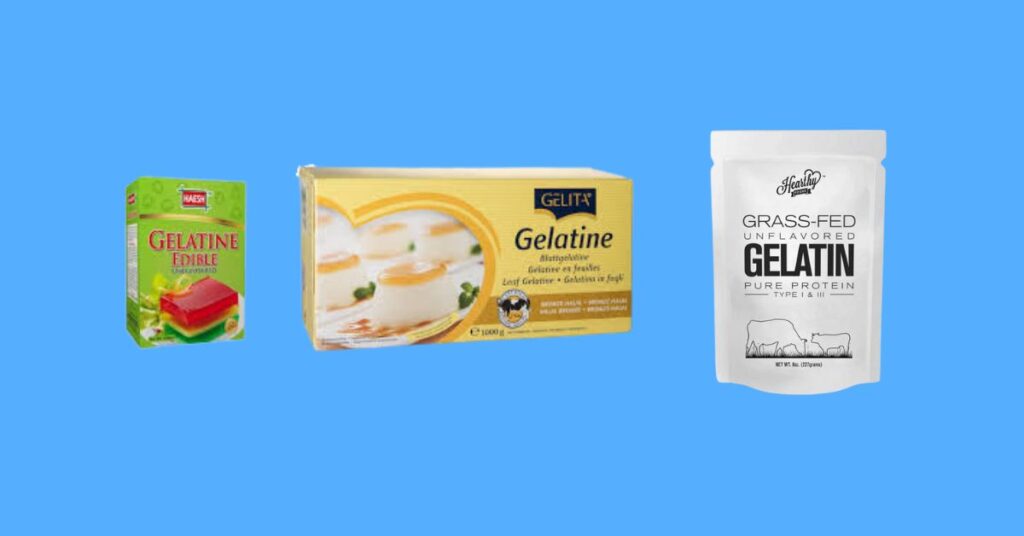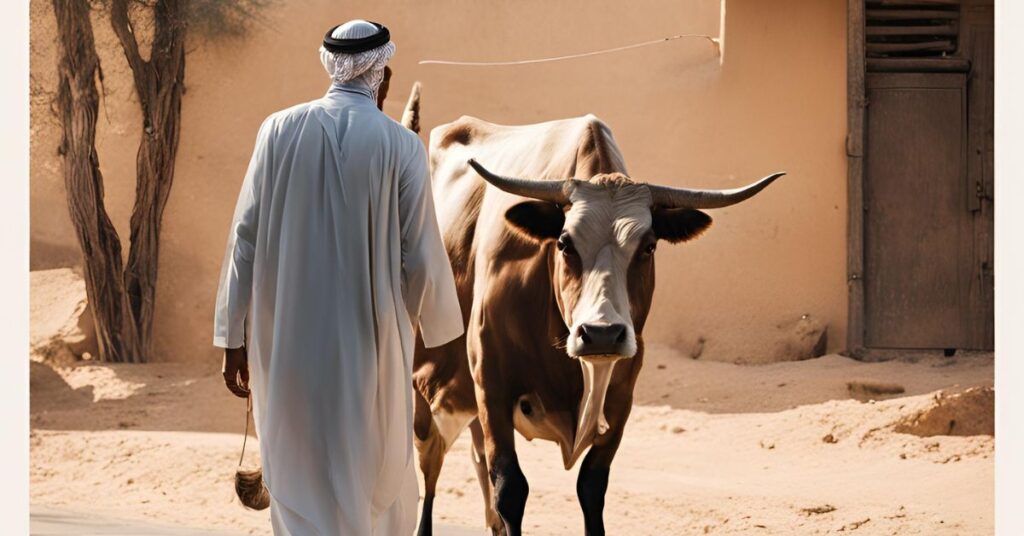Gelatin is a widely known substance that often sparks conversations among Muslims about the distinction between halal and haram products. Growing up, many of us were told not to indulge in gummy candies, certain sweets, or even ice cream that contained gelatin, but we didn’t always understand the Islamic law behind it or where gelatin actually comes from.
In reality, gelatin is a unique ingredient typically obtained by processing collagen from animals, making it highly consumable and easily absorbed by the body. However, because of how standard gelatin is prepared, it may not align with Islamic laws, especially for those of the Islamic faith who must follow halal guidelines. Therefore, halal gelatin is a great alternative.
Halal gelatin is produced from resources that meet strict requirements, ensuring the gelatin is permitted and does not include pig-based products, which are strictly prohibited in Islamic culture. When looking at critical factors for determining if gelatin is halal, it depends on its source, the method of processing, and ensuring no contaminants or cross-contaminants are present. This gelatin can be found in powders and is easily mixed with water to form a gel-like consistency.
It also lacks identifiable flavor and is translucent, which makes it an excellent ingredient for many applications, from cosmetics to pharmaceuticals and even food. Those who want to consider using halal gelatin can benefit from its versatility, whether for dietary reasons or in crafting products that align with their faith.
What is gelatin?

Gelatin is a common substance used in the food industry to give a unique consistency to products like candies, sweets, and even some types of ice cream. It is derived from collagen, which is extracted from bones, skin, and connective tissues of animals using a special boiling method.
This results in a fluffy texture that can be transformed into a gel-like form. The process also makes gelatin colorless and flavorless, so it doesn’t alter the taste or appearance of the food. However, for Muslims, it’s essential to ensure the gelatin is halal. The halal status of gelatin depends on the animals it comes from, as Islamic law prohibits certain animal products.
For example, Maytah or dead animals, as well as blood and pork products, are not allowed in the halal diet. The Qur’an clearly mentions this:
“He has forbidden you only the Maytah (dead animals), and blood, and the flesh of swine…” [Surah al-Baqarah 2:173].
This makes it clear that halal gelatin should not contain any pork products or ingredients from non-permissible animals, ensuring it is suitable for Muslims who follow a regulated diet based on Islamic law. Halal gelatin can be used comfortably by Muslims in their diet without worrying about violating their religious guidelines.
You Might Also Like: Is Starburst HALAL
What are the differences between gelatin and gelatine?
Gelatin and gelatine are actually the same substance, just spelled differently depending on where you are. Both terms refer to the same material, which has identical chemical properties and nutritional value. The difference is purely in the spelling.
The word gelatine is more commonly used in places like Europe and Asia, while gelatin is the preferred spelling in North America and Australia. Despite the spelling difference, the product itself is the same, used in various food items, medicines, and even beauty products, with no difference in how they work or their benefits.
Types of gelatin sources

Bovine Gelatin
Bovine gelatin is a type of gelatin made from the bones, hides, and skins of cattle. It’s commonly used in many products, especially when people want to avoid pork gelatin. The process involves extracting collagen from cattle bones and cattle hide, making it a great alternative to pig-based gelatin.
Bovine gelatin is known for its gelling properties and is used in various foods, pharmaceuticals, and even cosmetics. Beef gelatin is one of the most popular choices when it comes to following halal food standards.
Pork Gelatin
Pork gelatin is the most common form of gelatin, but it is derived from the skins and bones of pigs. It is the primary source of gelatin used in many everyday products. However, it is considered haram for Muslims, as pigs are not permissible in the Islamic diet. The haram meat makes it unsuitable for those who follow Islamic law. People who follow halal food standards avoid pork products, and this includes pork gelatin.
Fish Gelatin
Another alternative is fish gelatin, which is extracted from fish skins. Although not as common as bovine or pork gelatin, it is a great option for people on pescatarian or kosher diets. This type of gelatin is a suitable substitute for people who prefer to avoid animal products from land animals.
Since it’s derived from fish, it meets the requirements of both kosher and halal standards in some cases. Fish gelatin is also known for its versatility and effectiveness in achieving the right texture in products.
Vegetarian Gelatin
Vegetarian gelatin is an excellent plant-based alternative to traditional gelatin. It’s made from ingredients like cornstarch or agar agar, which are derived from algae. This type of gelatin is often used by people who want to avoid animal products altogether, while still achieving the same gelling properties. It is an ideal option for those following a vegetarian or vegan diet, and it can replicate the texture of traditional gelatin found in puddings, candies, and more.
Kosher Gelatin
Kosher gelatin can be made from either fish or beef, but it must meet the strict kosher laws for slaughter. Though it may come from permissible animals, it doesn’t always match halal food standards.
The main difference is the slaughtering process, which must adhere to specific kosher guidelines. Kosher gelatin is a vital part of Jewish diets, but if someone follows halal food standards, they must ensure it is sourced from halal–approved animals.
Does halal gelatin exist under Islamic law?
Under Islamic law, the question of whether halal gelatin exists depends on several factors, including the source animal, the processing methods, and how the gelatin is made. Gelatin is often derived from animals like pigs or cattle, and while pigs are considered haram, gelatin can be permissible if it’s sourced from animals slaughtered according to Islamic regulations.
The halal status of gelatin largely depends on the slaughtering process and whether the gelatin’s source follows the halal requirements. The Qur’an provides clear guidelines on what is permissible and forbidden:
“He has only forbidden you to eat carrion, blood, swine, and what is slaughtered in the name of any other than Allah. But if someone is compelled by necessity—neither driven by desire nor exceeding immediate need—they will not be sinful. Surely Allah is All-Forgiving, Most Merciful.” – Surah Al-Baqarah (2:173).
Some Islamic scholars argue that even gelatin made from pork could be permissible if it undergoes a complete transformation in its chemical structure, turning it into something entirely different. Beef gelatin, made from cattle bones and cattle hide, can also be halal if the cattle are slaughtered in a manner consistent with Islamic law and the gelatin production methods are clean.
You Might Also Like: Is Chick-fil-A Chicken HALAL
How to use halal gelatin
Food industry
Gelatin is commonly used in the food industry, especially in desserts, dairy products, and fluffy sweets. It provides the perfect texture and consistency in products like Jell-O brands and other gelatin-based snacks. People enjoy these treats because they have a smooth, gel-like texture, which makes them fun and delicious.
Non-food products
Beyond the kitchen, gelatin plays an important role in medical science and photography essentials. It’s a protein substance packed with amino acids that help support joint health. Gelatin is also found in various cosmetics, providing benefits for skin care. Its use is broad, making it an essential component not just in food but also in health and beauty products.
Health dividends
When used regularly, beef gelatin can offer numerous health benefits. It is known to promote joint health due to its high protein and amino acid content. Many people turn to gelatin as a source of health dividends, especially for those who want to support their body’s natural recovery and flexibility. In conclusion, the discussion around gelatin among Muslims is complex and has multiple aspects:
Source
The source of gelatin is crucial in determining whether it meets halal standards. Pork gelatin and other pig products are not permissible under Islamic law, making beef gelatin and fish gelatin better alternatives for Muslims. When choosing gelatin, make sure it’s clearly marked with a halal logo to guarantee its compliance with dietary guidelines.
Transformation
A major aspect of gelatin production is whether it undergoes transformation during its creation. Islamic jurisprudence allows for substances that have undergone a complete transformation to be considered permissible, even if the original material was haram. This process is key in the gelatin debate, especially regarding whether gelatin derived from pork gelatin can be considered halal after being processed.
Verification
To avoid cross-contamination and ensure the gelatin is safe for Muslims, proper gelatin authentication methods are essential. The halal status of the gelatin is verified by Islamic organizations to ensure it complies with halal regulations. Products with a clear halal logo, such as halal Haribo gummy bears, provide assurance that the gelatin has been verified and meets halal food standards.
Qamar Ul Haq is an Islamic historian and writer with a passion for uncovering the rich heritage of Muslim civilizations. Through in-depth research and storytelling, He brings to life the achievements, struggles, and contributions of the Ummah throughout history.